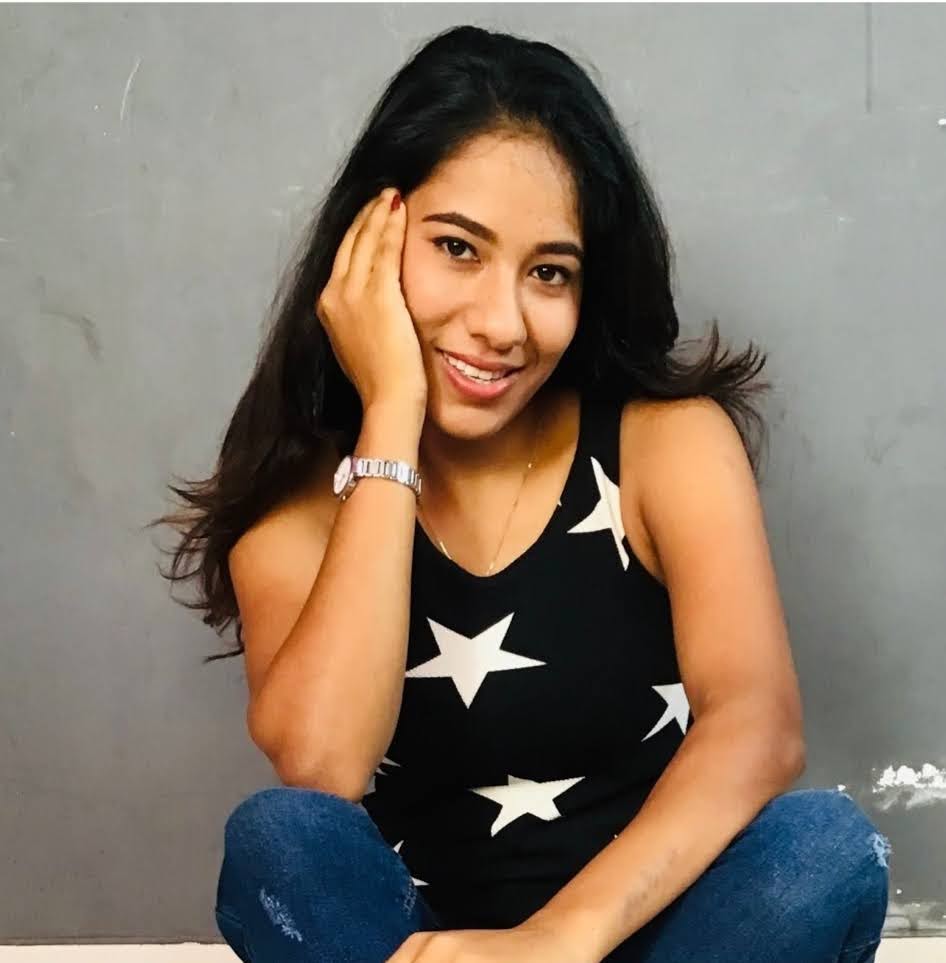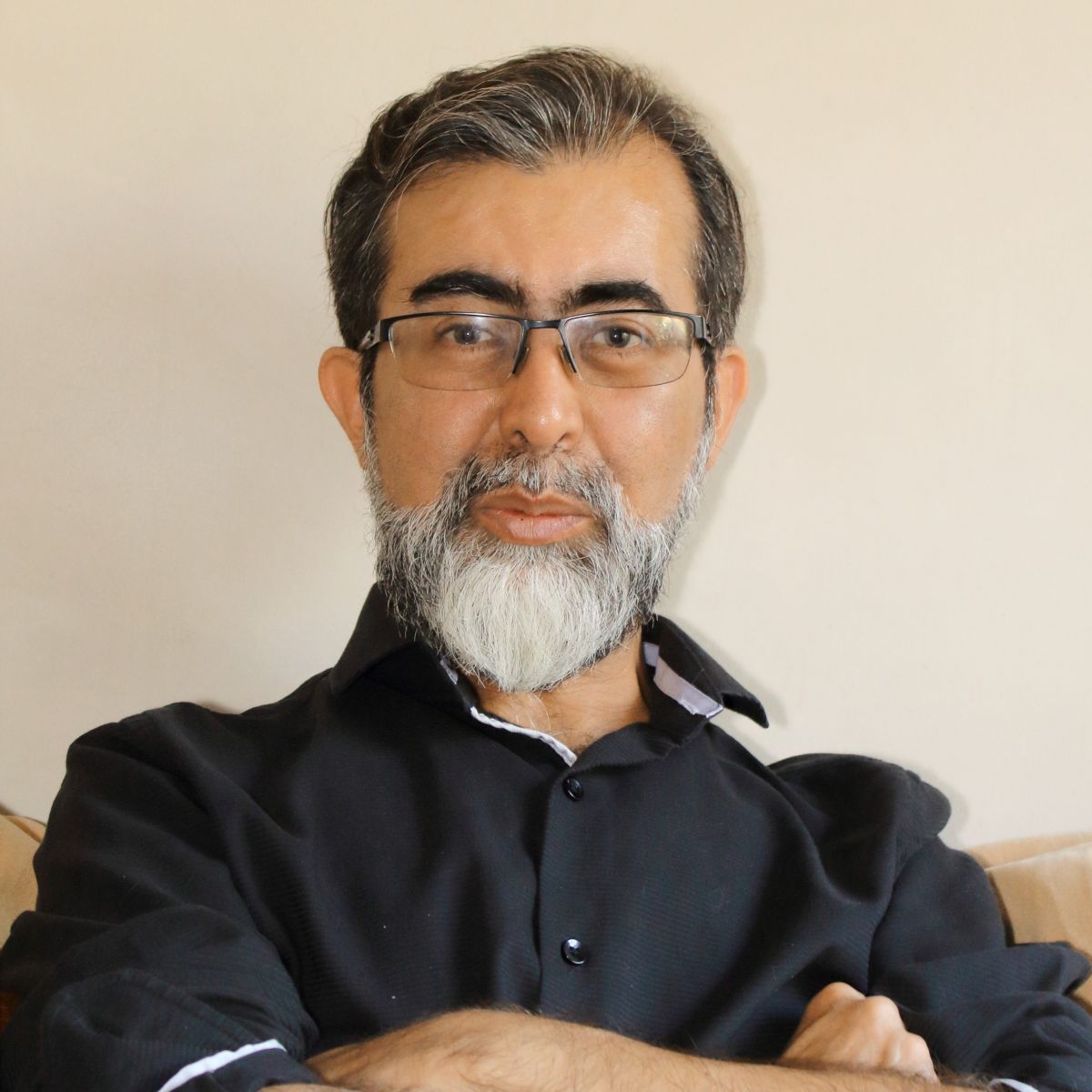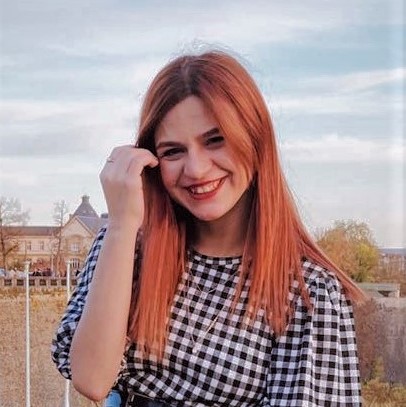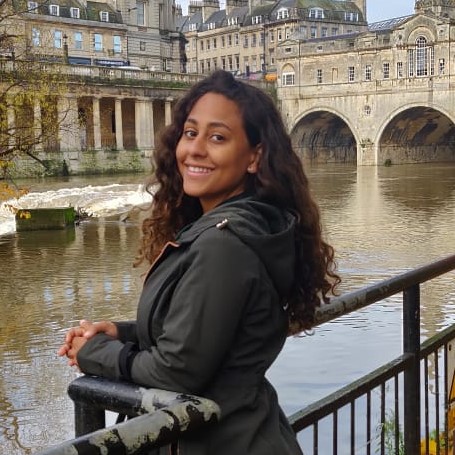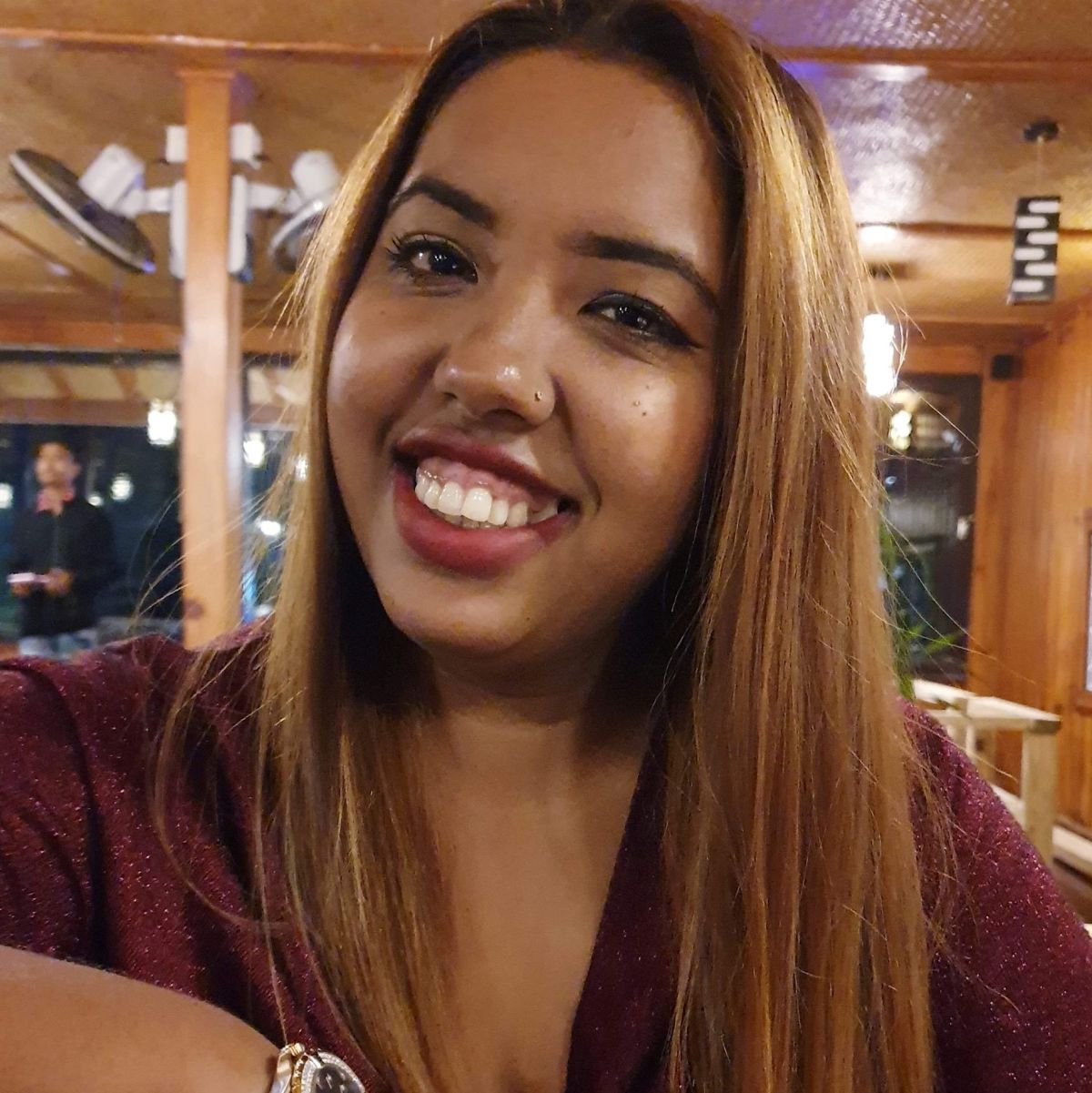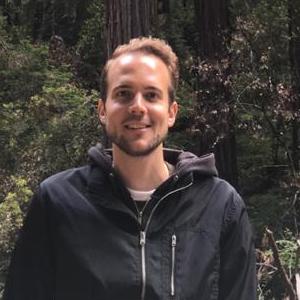Hija de una trabajadora sexual
En la sociedad en la que crecí, me decían que, si alguien me tocaba o trataba de portarse mal conmigo, era mi culpa, que yo se lo permitía.
India, Southern Asia
Story by Taniya Yadav. Translated by Aobh Mc Anulty
Published on May 17, 2021.
This story is also available in 



Advertencia de contenido: Esta historia contiene menciones a la violencia de género, a la violencia sexual y a comportamientos suicidas que pueden resultar molestos para algunos lectores.
Me llamo Taniya y tengo 24 años. Nací en Calcuta, Bengala Occidental. Mi madre procedía de una familia muy pobre. Tenía diez hermanos: tres hermanos y siete hermanas. Mi abuelo era un pandit [1] y ganaba muy poco dinero para llevar la casa. Le costó mucho dar educación a todos sus hijos, lo que les obligó a realizar trabajos de poca importancia, como el servicio doméstico.
Mi madre fue vendida a una casa de pila [2] en Kamathipura, la zona roja de Mumbai, cuando tenía nueve años. Se casó con uno de sus clientes y se quedó embarazada de mí cuando tenía unos 15 años. Cuando tenía una semana de vida, mi madre me dejó con mi tía y regresó a Mumbai para volver al trabajo sexual.
Cuando era niña, la vida era muy difícil. Todavía recuerdo que, a veces, solía dormir sin comer durante 4 o 5 días, literalmente. Sólo bebía agua y dormía. Nunca comía tres veces al día. Otros niños de mi edad me acosaban y se mofaban de mí, diciendo: "No puedes jugar con nosotros porque tu madre es una trabajadora sexual y no vas a la escuela como nosotros".
Yo era un niña que debía estar en la escuela. En cambio, me enviaron a trabajar en un mercado cercano. Llevaba cubos de agua al vendedor de pescado y me daban 2 rupias por cada cubo. No sólo eso, me tocaban en mis partes íntimas. Todo esto seguía ocurriendo, y yo siempre tenía miedo de contárselo a alguien.
De repente, un día llegó a Calcuta una mujer que decía ser mi madre y que me iba a llevar con ella a Mumbai. Yo tenía unos 8 años y nunca había visto a esa mujer; no la conocía de nada. Tenía miedo de ir con ella. Finalmente, cuando mi tía me aseguró que realmente era mi madre, me fui con ella a Mumbai.
El día que llegué a Mumbai, mi madre me presentó a un hombre, mi padrastro, diciendo en ese momento que era mi verdadero padre. De niña, la creí, porque nunca había conocido ni visto una foto de mi verdadero padre. También descubrí que tenía dos hermanas más que estaban fuera estudiando en internados. Cuando cumplí 9 años, mi madre y ese hombre me enviaron a vivir a un hogar dirigido por una ONG llamada Asha Sthan.
Recuerdo que todas las noches se preparaba como si fuera a ir a una fiesta.
Unos años más tarde, creo que tenía unos 13,5 años, mi madre decidió traernos a mis hermanas y a mí de los hogares de acogida. Nos encontró a mí y a mi hermana menor, Mahek, pero nunca encontramos a nuestra hermana mediana.
Fue difícil para mí volver a casa después de tanto tiempo. Todo era diferente. Mi padrastro golpeaba a mi madre todos los días. No podía entender por qué sucedía esto, y todavía no entendía que mi madre fuera una trabajadora sexual.
Recuerdo que todas las noches se arreglaba como si fuera a asistir a una fiesta: lápiz de labios brillante, sari morado luminoso, joyas y pelo liso. Cuando volvía a casa, solía estar borracha. Nunca tuve el valor de preguntarle qué tipo de trabajo hacía, porque nunca tuvimos una buena relación madre-hija.
Un día, mi madre se fue de casa y no volvió. Le pedí a mi padrastro que me llevara al lugar donde ella trabajaba, junto a una de las estaciones de tren de Mumbai. Me llevó a la zona roja y ese día descubrí que mi madre era una bailarina de bar [3] y una trabajadora sexual. Me quedé absolutamente desolada: había visto películas que me daban una idea de cómo eran las trabajadoras del sexo, y siempre se las describía de forma negativa. Esa noche, cuando encontré a mi madre, le pedí que volviera a casa, pero se negó. Volví a casa con la esperanza de que volviera. Nunca lo hizo.
Sentía que estaba viviendo la vida de mi madre; estaba harta de todo.
Entonces, sólo estábamos en casa mi padrastro, mi hermana y yo. Empezó a golpearme casi todos los días y ese abuso se convirtió en violación después de algún tiempo. Me amenazaba diciendo que, si me negaba a acostarme con él, le haría lo mismo a mi hermana. Por aquel entonces, no tenía otra opción. Todavía recuerdo la primera vez que dormí a su lado.
Sentía que estaba viviendo la vida de mi madre; estaba harta de todo. Quería renunciar a la vida, acabar con ella, pero al mismo tiempo no quería que le pasara algo malo a mi hermana. Por eso fui tres veces a la comisaría para denunciar los abusos y pedir ayuda. Los policías me enviaban a casa diciendo que era normal, un asunto familiar. Una vez me dijeron: "Ahora tienes 16 años y no podemos tomar tu denuncia hasta que tengas 18". Entonces, llamaban a mi padrastro, que luego me golpeaba por intentar denunciarlo. Después de que la policía me rechazara varias veces, intenté suicidarme.
Pero sobreviví.
Estaba indefensa pero no débil. Quería luchar por mi hermana. En ese momento, no conocía a nadie en Mumbai. No sabía dónde ir ni a quién pedir ayuda y no tenía dinero. Entonces, un día, me acordé de una amiga de Asha Sthan. Le hablé de lo que estaba pasando y me habló de una organización con la que trabajaba, Kranti, que se dedicaba a empoderar a los hijos de las trabajadoras del sexo. Me dio el número de teléfono de la fundadora de Kranti, Robin. Robin fundó Kranti para trabajar con los hijos de las trabajadoras del sexo, de entre 12 y 22 años, y otras mujeres explotadas de Mumbai, para ayudarles a superar su educación, redimir su sufrimiento silencioso y convertirse en agentes del cambio social.
Esa noche, con Kranti en mente, le dije a mi hermana Mahek que me iría de casa al día siguiente, pero le prometí que volvería por ella algún día. Necesitaba algo de tiempo para crear un espacio seguro para nuestro futuro. Ella tenía miedo de que me fuera para siempre y se puso a llorar. ¿Qué otra cosa podía hacer? Sólo tenía 8 años.
Creo que el día que vine a Kranti y conocí a Robin, nací de nuevo.
El 9 de junio de 2013, me fui de casa y nunca más volví. Fue la decisión más difícil que he tomado hasta el momento. Fue muy difícil dejar a mi hermana con mi violador y abusador.
Creo que el día que llegué a Kranti y conocí a Robin, nací de nuevo. Ella me llevó a un terapeuta. En aquel momento, no sabía lo que era un terapeuta. Por primera vez en 16 años, podía sentarme delante de alguien y llorar en voz alta. Y lo que es más importante, tenía a alguien sentado frente a mí diciéndome que estaba bien y que no era mi culpa.
Me prometí a mí mismo que sacaría a Mahek en un año. La saqué y la llevé a Kranti en 8 meses.
Desde entonces, Kranti es mi familia, mi hogar para siempre y mi lugar feliz. Kranti me ha dado el amor que nunca había imaginado y los cuidados que siempre había deseado. Me ha dado la mejor educación y, sobre todo, terapia. Incluso hoy en día sigo necesitando ayuda porque el trauma que tuve en mi pasado todavía está fresco. Nunca puedo negarlo. La terapia me ayuda a darme cuenta de que lo único que puedo hacer es aceptar mi pasado y avanzar en la vida.
En la sociedad en la que crecí, me decían que, si alguien me tocaba o intentaba portarse mal conmigo, era culpa mía, que yo se lo permitía. Incluso ahora mis amigos y mucha gente de mi entorno me preguntan: "¿por qué no se lo dijiste a alguien?" Nunca se lo conté a nadie porque tenía miedo de que me juzgaran y me dijeran que todo era culpa mía.
Quiero seguir compartiendo mi historia sin importar cuánta gente me señale y diga que fue mi culpa porque tiene el poder de cambiar la vida de alguien. Alguien está luchando en silencio en su propio camino. Utilizo esta frase como un mantra.
Hoy en día soy instructora de Zumba con licencia, facilitadora de grupos, oradora inspiradora y próximamente azafata. Recientemente he puesto en marcha mi taller " Una pequeña felicidad,", en el que trabajo con niños pequeños que viven en casas de acogida para ayudarles a curarse de sus traumas a través de formas creativas, como la Zumba. Todavía me quedan kilómetros por recorrer, pero para mí, liderar es importante.
[1] Erudito hindú con conocimientos de sánscrito y filosofía y religión hindúes, que suele ser también un sacerdote en activo.
[2] Durante el dominio británico, la zona roja se llamaba "playhouse" o casa de juegos en español. Con el paso de los años, y a medida que la gente elegía la fonética por encima de las palabras reales, surgió 'pila house' y se convirtió en el término más utilizado.
[3] Bar de baile es un término utilizado en la India para referirse a los bares en los que el entretenimiento para adultos, en forma de bailes de mujeres relativamente descubiertas, se realiza para los clientes masculinos a cambio de dinero.
How does this story make you feel?
Follow-up
Do you have any questions after reading this story? Do you want to follow-up on what you've just read? Get in touch with our team to learn more! Send an email to [email protected].
Talk about this Story
Please enable cookies to view the comments powered by Disqus.
Subscribe to our Monthly Newsletter
Stay up to date with new stories on Correspondents of the World by subscribing to our monthly newsletter:
Other Stories in Español
Explore other Topics
Get involved
At Correspondents of the World, we want to contribute to a better understanding of one another in a world that seems to get smaller by the day - but somehow neglects to bring people closer together as well. We think that one of the most frequent reasons for misunderstanding and unnecessarily heated debates is that we don't really understand how each of us is affected differently by global issues.
Our aim is to change that with every personal story we share.
Community Worldwide
Correspondents of the World is not just this website, but also a great community of people from all over the world. While face-to-face meetings are difficult at the moment, our Facebook Community Group is THE place to be to meet other people invested in Correspondents of the World. We are currently running a series of online-tea talks to get to know each other better.











